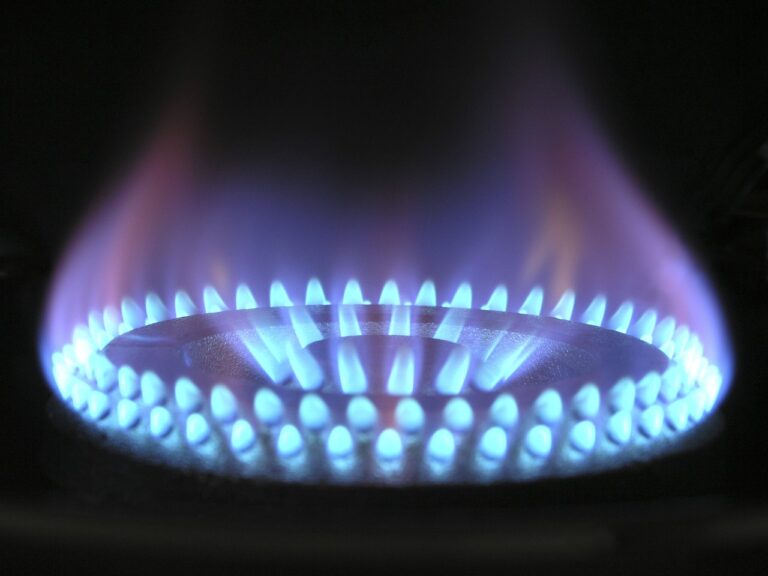Proactive Summer Cooling Tips for Your AC System
As temperatures soar during the summer, your air conditioning system becomes your best ally in maintaining a comfortable indoor environment. To ensure your AC system doesn’t experience a meltdown of its own, it’s crucial to adopt proactive cooling strategies. In this blog post, we’ll explore key tips to help you stay cool and prevent emergency repairs to your AC system.
Proactively implementing these summer cooling tips not only keeps you comfortable but also safeguards your AC system from emergency repairs. A well-maintained and efficiently operated AC system ensures that you stay cool throughout the summer without unexpected disruptions. Stay ahead of the heat, and enjoy a worry-free cooling experience in your home.
Regular AC MAintenance
Regular AC maintenance is a cornerstone of proactive cooling strategies to prevent AC system emergencies, particularly during the sweltering summer months. Scheduling routine maintenance checks, ideally before the onset of summer, ensures that your air conditioning system is in optimal condition to handle the increased demand for cooling.
During maintenance visits, HVAC professionals conduct thorough inspections, clean components, and address potential issues before they escalate. This preventive care not only enhances the immediate performance of your AC system but also mitigates wear and tear, reducing the likelihood of unexpected breakdowns.
Filter replacement is a crucial aspect of regular maintenance. Clogged or dirty filters can impede airflow, forcing the system to work harder and increasing the risk of malfunctions. By replacing filters regularly, you promote efficient operation and prevent strain on the system.
Ensuring proper airflow is another key component of preventive maintenance. Clean vents, unobstructed airflow paths, and well-maintained ductwork contribute to the overall efficiency of your AC system, reducing the likelihood of emergencies.
Investing in regular AC maintenance not only enhances the longevity and efficiency of your system but also provides peace of mind during the peak summer season. By staying ahead of potential issues, homeowners can enjoy a worry-free and consistently comfortable cooling experience, minimizing the risk of unexpected disruptions and emergency repairs.
Clean and Replace Air Filters
Cleaning and replacing air filters is a fundamental cooling tip to prevent AC system emergencies, particularly during the intense heat of summer. Air filters play a crucial role in maintaining the efficiency and overall health of your air conditioning system. Over time, these filters accumulate dust, dirt, and debris, leading to reduced airflow and increased strain on the system.
Regularly cleaning or replacing air filters is a simple yet effective measure to ensure optimal performance and prevent emergencies. Clogged filters force the AC system to work harder, leading to decreased efficiency and a higher risk of malfunctions. By maintaining clean filters, you allow unrestricted airflow, reducing the workload on the system and promoting smoother operation.
The frequency of cleaning or replacement depends on factors such as filter type, usage patterns, and indoor air quality. As a general guideline, it’s recommended to check filters monthly and replace them every 1-3 months, or more frequently if needed.
This proactive approach not only helps prevent unexpected breakdowns but also contributes to energy efficiency and cost savings. Clean air filters enhance the lifespan of your AC system and ensure that it operates at peak performance, providing reliable and consistent cooling during the summer months while minimizing the risk of emergencies.

Check Thermostat Settings
Checking thermostat settings is a crucial cooling tip to prevent AC system emergencies, especially during the summer when precise temperature control is essential. Incorrect thermostat settings can lead to inefficiencies, overworking the system, and potentially causing malfunctions.
Ensure that your thermostat is set to an appropriate temperature for comfort while being mindful of energy efficiency. During the summer, a recommended setting is around 78 degrees Fahrenheit when you’re at home and slightly higher when away. Avoid setting the thermostat too low, as this can strain the AC system and increase the risk of emergencies.
Programmable thermostats offer an additional layer of control. Create a schedule that aligns with your daily routines, allowing the system to adjust temperatures when needed. This not only enhances comfort but also promotes efficient operation, reducing the chances of unexpected breakdowns.
Regularly check and change the batteries in your thermostat to ensure consistent performance. Malfunctions or inaccurate readings due to low batteries can lead to inefficient cooling and potential emergencies.
By paying attention to thermostat settings, homeowners can proactively manage their AC systems, promoting energy efficiency and preventing unnecessary strain. This simple yet crucial step contributes to a worry-free cooling experience during the summer months, minimizing the risk of emergencies and ensuring reliable indoor comfort.
Seal Leaks and Insulate
Sealing leaks and adding insulation are proactive cooling tips that can significantly prevent AC system emergencies, particularly during the scorching summer months. Ensuring that your home is properly sealed and insulated not only enhances energy efficiency but also reduces the workload on your air conditioning system, minimizing the risk of unexpected breakdowns.
Addressing air leaks by sealing gaps and cracks in doors, windows, and other openings prevents cool air from escaping and warm air from entering. This helps maintain a consistent indoor temperature, easing the strain on the AC system. Sealing leaks ensures that the cooled air produced by the AC unit is effectively distributed throughout your home, promoting efficient operation.
Adding or improving insulation in key areas such as the attic, walls, and crawl spaces further enhances your home’s ability to retain cooled air. Proper insulation acts as a barrier against heat transfer, reducing the need for constant cooling and preventing the system from overworking.
By taking these steps, homeowners not only optimize the performance of their AC systems but also contribute to energy savings. A well-insulated and sealed home creates a more comfortable indoor environment, reducing the risk of emergencies and promoting long-term reliability for the air conditioning system. These cooling tips provide a comprehensive approach to maintaining a cool and efficient home during the summer, minimizing the chances of unexpected AC system issues.
Limit Heat-Producing Activities
Limiting heat-producing activities is a practical cooling tip that can effectively prevent AC system emergencies, especially during the hot summer months. Certain household activities generate additional heat, placing an extra burden on your air conditioning system. By adopting strategies to minimize these heat-producing activities, you can enhance the efficiency of your AC system and reduce the risk of unexpected breakdowns.
One key practice is to avoid using heat-generating appliances during the hottest parts of the day. Appliances such as ovens, stoves, and clothes dryers contribute to indoor heat, causing the AC system to work harder to maintain a comfortable temperature. Consider using these appliances during the cooler evening hours or early morning to lessen the impact on your cooling system.
In addition, using energy-efficient lighting options and turning off unnecessary lights can reduce the heat generated inside your home. Incandescent bulbs, in particular, emit more heat than energy-efficient alternatives, contributing to the overall thermal load.
By being mindful of heat-producing activities and adjusting your daily routines, you can create a cooler indoor environment, allowing your AC system to operate more efficiently. These proactive measures not only contribute to energy savings but also help prevent the strain on your AC system, minimizing the risk of emergencies and ensuring a reliable and comfortable cooling experience.
Shade Your Home
Shading your home is a strategic cooling tip that plays a pivotal role in preventing AC system emergencies, especially in the blazing heat of summer. Proper shading helps reduce the overall heat gain in your home, alleviating the burden on your air conditioning system and promoting more efficient cooling.
Strategically planting trees or installing exterior shading devices, such as awnings or pergolas, can create a barrier against direct sunlight. This not only prevents excessive heat from entering your home but also minimizes the need for constant cooling, reducing the strain on your AC system.
Utilizing natural elements like trees provides an added benefit of improved air quality and aesthetics. Deciduous trees, in particular, offer shade during the summer while allowing sunlight to filter through during the winter months when heating may be desired.
Incorporating reflective roofing materials or coatings can further enhance the cooling effect by deflecting sunlight and reducing heat absorption. These measures collectively contribute to maintaining a cooler indoor environment, ensuring that your air conditioning system operates efficiently without unnecessary stress.
By shading your home, you create a more comfortable living space and significantly reduce the risk of AC system emergencies. This proactive approach not only improves energy efficiency but also extends the lifespan of your cooling system, providing a reliable and sustainable solution for maintaining indoor comfort during the hottest times of the year.
Maintain Outdoor Unit
Maintaining your outdoor condenser is a crucial cooling tip to prevent AC system emergencies, particularly during the demanding summer season. The outdoor condenser unit plays a pivotal role in the overall performance of your air conditioning system, and regular maintenance ensures its optimal functionality.
Start by keeping the area around the condenser unit clear of debris, vegetation, and any obstructions. Adequate clearance allows for proper airflow, preventing overheating and strain on the system. Regularly trim bushes or plants to maintain a minimum distance around the unit.
Cleaning the condenser coils is another essential step in preventive maintenance. Over time, dust, dirt, and debris accumulate on the coils, hindering heat exchange. Gently rinse the coils with a garden hose to remove any buildup and enhance their efficiency.
Inspect the fins for any damage or bending, as this can impede airflow. Straighten bent fins using a fin comb or a gentle touch to ensure unobstructed air circulation.
Check for any loose or damaged components, such as fan blades or fasteners, and tighten or replace them as needed. Ensure that the fan is operating smoothly, as any issues with the fan can lead to overheating and potential system failures.
Regular attention to your outdoor condenser unit promotes optimal operation, reduces the risk of emergencies, and extends the lifespan of your air conditioning system, ensuring reliable and efficient cooling during the hottest months.
Monitor Unusual Sounds or Odors
Monitoring unusual sounds or odors is a vigilant cooling tip crucial for preventing AC system emergencies, especially during the summer months when your air conditioning system is working at its peak. Unusual sounds or odors may be indicative of underlying issues that, if addressed promptly, can prevent major malfunctions.
Listen for any sudden or persistent noises coming from your AC system, such as grinding, squealing, or banging sounds. These may suggest issues with components like the fan, motor, or belts. Prompt identification and resolution of these noises can prevent further damage and potential emergencies.
Unpleasant odors, such as mustiness or burning smells, can be signals of issues like mold growth, electrical problems, or overheating. Investigating and addressing these odors early on can prevent emergencies and ensure the continued efficiency and safety of your AC system.
If you notice any unusual sounds or odors, it’s advisable to turn off your AC system immediately and seek professional assistance. Ignoring these signs may lead to more extensive damage and costly emergency repairs.
Regularly monitoring your AC system for any anomalies in sounds or odors, and addressing them promptly, contributes to the overall health and longevity of the system. This proactive approach minimizes the risk of unexpected breakdowns, ensuring uninterrupted and efficient cooling during the peak of the summer season.

